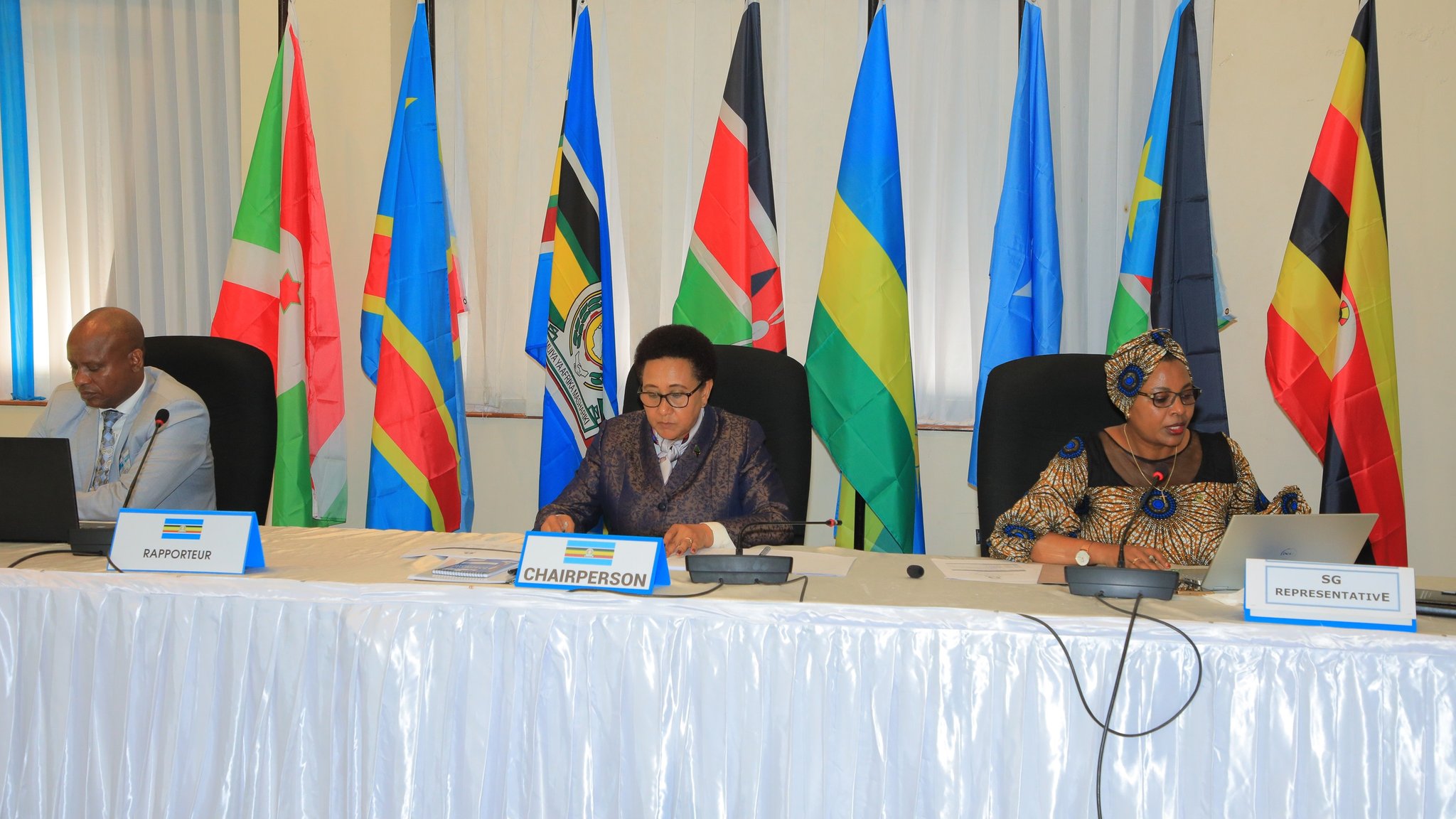
East African Community’s Ailing Border Points Have Refused to Let in Goods, People
By Musila Muoki
Tied to a Stinky Past
Following a high-level joint border sensitization mission at the Elegu/Nimule border between Uganda and South Sudan, the need for partner state collaboration to enhance cross-border trade in the East African region is being emphasized. It is increasingly emerging that cross-border inefficiencies occur at the border points despite continued calls for the implementation of the One-Stop Border Posts among East African nations. As Gateways to coordinated trade across the region, it is time that East African Community States walked the talk on opening borders for seamless flow of goods and labor across the region. Closed and inefficient borders have been endemic to the poor trade outcomes among East African countries continuously impacting wealth creation negatively.
Historical cases of mistrust have seen borders between Uganda and Rwanda closed for up to 3 years to the detriment of trade efficiency. Recently, Burundi closed her border with Rwanda over accusations of Kigali’s support for the Red Tabara Rebel group. The challenges have also been replicated between Kenya and Tanzania and Congo and Rwanda increasingly raising concerns on the effectiveness of the EAC in guaranteeing open borders and the creation of a single regional market. The restriction of the movement of goods and people between any nations in the bloc violates the principles of regional cooperation and integration. It is perhaps time sensitization among member states focused on the implementation of the One-Stop Border Posts and trade facilitation measures to ease trade.
Amplifying Regional Cooperation Efforts
Earlier in 2024, Rwanda claimed to have learned of the closure of its borders with Burundi through the media, an indication of a breakdown in communication and cooperation between nations purporting to root for a single EAC market. Cross-border trade relations and regional integration efforts cannot be realized unless partner states commit to tackling challenges proactively to prevent the escalation of disputes. Platforms for in-depth discussions on issues that impact trade between nations and within border points must be prioritized with local stakeholders’ involvement taking center stage.

In 2023, an AU Border Program (AUBP) launched a peace caravan and benchmarking tour on the Kenya-Tanzania border in collaboration with the EAC secretariat, Uganda, South Sudan, and Kenya. Questions therefore arise on the applicability of lessons drawn from such initiatives in the EAC on enhancing seamless trade across borders and in facilitating peaceful co-existence, good neighborliness, and peaceful dispute resolutions to give the trade a change. The EAC secretariat must take up the challenge of reviewing the performance of the One Stop Border Points for experiential learning from past failures and successes. Recorded success in streamlining clearance processes, enhancing security measures, digitalization, and harmonization of trade rules ought to be replicated across the region in collaboration with partner states.
The lack of information on trade regulations, violence and harassment, and intolerance for informal traders within borders will continue to impact trade negatively in addition to discouraging informal women and youth traders. About 47% of women and youth in cross-border trade on the bloc rely on informal routes, accounting for over 50% of the businesses seeking opportunities across the region. Notably, the majority of these traders are alienated from information flow on critical trade concessions, including the Simplified Trade Regime on customs procedures and documentation with the avoidance of formal borders amplifying costs of doing business. Another chuck of traders and border authorities remains ignorant of the mechanism established under the African Continental Free Trade Area to eliminate non-tariff barriers to increase intra-trade among neighboring nations. While boardroom stakeholders understand the importance and efforts made to expedite clearance times and simplification of borders, there is a need for trader sensitization for enhanced informal trading options.
“Efficient collaboration between border authorities and traders is a prerequisite to easing of border processes and enhancing seamless movement of goods and trade.”
The implementation of the One Stop Border Points mechanisms in the region aimed at expediting cross-border movement of people and goods has enjoyed its successes over time. However, differing operational hours and tax regime challenges persist in the region causing delays and increased business costs for traders. This calls for amplified efforts in the harmonization and coordination between border authorities to facilitate smoother trade operations between the nations. The implementation of the One Stop Border Points, especially among younger EAC member nations must be people-centric bringing together diverse stakeholders, adopting cohesion-building mechanisms, embracing joint management of shared resources, and enhancing gender sensitivities.
A Multi-Stakeholder Approach
The buck stops with the EAC on enhancing improved understanding of the One Stop Border Point phenomenon in partnership with relevant state agencies within partner states. With borderlands bearing a bigger burden of poverty, insecurity, displacement, and climate impacts across EAC nations, it is not lost on players on the need to predispose border communities to suffering. Sensitization programs for the understanding of OSBP procedures, tackling environmental challenges, gender sensitivity, and proper resource management and sharing ought to be prioritized.
Efficient collaboration between border authorities and traders is a prerequisite to easing of border processes and enhancing seamless movement of goods and trade. With the many initiatives put in place to facilitate trade and regional integration, capacity building is needed for traders to fully understand, experience, and appreciate the benefits of the EAC initiatives. Moreover, infrastructure development to support cross-border trade must be undertaken including digitalization and equipping of OSBP and linking transport corridors and networks.
Notably, nations sharing borders in the bloc have the responsibility to develop strategies for transforming operations within border points. Partners must learn from past failures and undertake measures to solve border-specific challenges in addition to the implementation of proposed concessions from the regional community leadership. While the EAC secretariat has the responsibility of creating systems for the actualization of regional aspirations, infrastructure development, IT systems interconnectivity, and provisions for trade formalization functions must be implemented within responsible government agencies.
Thus, the EAC and partner nations must turn their attention to the sensitization of stakeholders within borders where most cross-border trade inefficiencies exist despite the implementation of the One Stop Border Point initiative. The acceleration of Common market and customs union imperatives is necessary for the region to rise above border closures, differing operational procedures, and trader alienation challenges that still drag intra-EAC trade behind.



